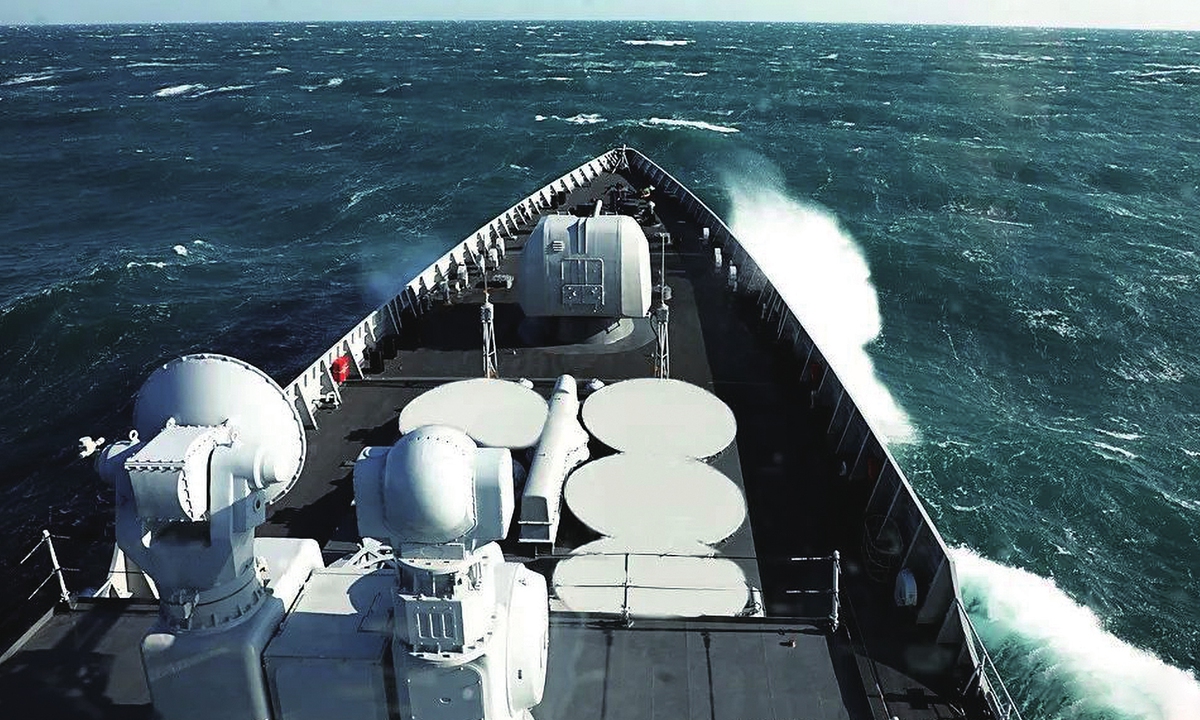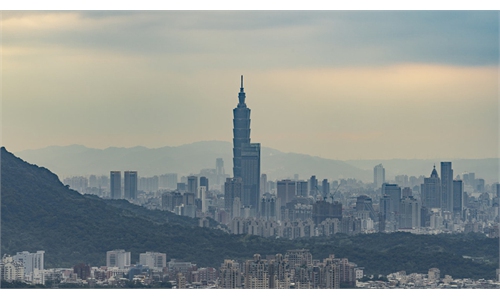Chinese mainland is the ultimate playwright of Taiwan Straits’ drama series

The Chinese People's Liberation Army (PLA) Eastern Theater Command on December 25, 2022 organizes cross-service joint combat alert patrols and joint fire strike exercises in maritime and aerial areas around the island of Taiwan in a resolute response to the recent escalation in the US-Taiwan collusion. Photo: Sina Weibo of PLA Eastern Theater Command
Politico reported that the Pentagon is making preliminary plans for new house speaker Kevin McCarthy's travel schedule, including a possible trip to the island of Taiwan this spring. That US media reveals the military was making security preparations for McCarthy's Taiwan visit can be seen as the first move of the public opinion war ahead of the visit.
A "serial" has been played in the Taiwan Straits and almost every time it is the US and the separatist Taiwan authorities that made the first move while Washington seems to be the "main writer" of this serial. However, these people in the US and Taiwan island who take the provocative actions only have been trying to cram the plot into the script, striving for a dazzling pose, rather than focusing on the ending. In particular, as the provocative actors, there is no fundamental coordination between the US and the Taiwan island, or even within the US, on the means of provocation. New house speaker McCarthy is not only anti-China, but is a Republican who would not coordinate with the Democratic Biden administration. What he pursues, in the first place, is his own spotlight and influence.
However, the Chinese mainland is concerned with not only how events are unfolding, but is more committed to shaping the outcome of the Taiwan Straits drama series. The provocations made by the US and the island have provided the Chinese mainland with multiple opportunities to hone its leverage for the final settlement of the Taiwan question. Last year, the People's Liberation Army (PLA) conducted comprehensive military exercises around the Taiwan island, rehearsed the siege of the island, simulated the seizure of the island from multiple directions, and in effect formed a short blockade of the island, which undoubtedly paved the way for the ending.
The US holds the initiative on whether or not to make trouble across the Taiwan Straits. It may do plenty of things, like sending senior officials to the island, pushing collusions with the island that cross the line, or making a radical statement. However, the initiative of how and when to solve the Taiwan question lies entirely in the hands of the Chinese mainland.
Therefore, the initiative of the US is more tactical and the initiative of the Chinese mainland is more strategic. What the US and Taiwan authorities are afraid of is the increasingly strong strategic initiative formed by the mainland based on its rapid development. There is no doubt that the mainland is the ultimate playwright of the Taiwan Straits' drama series.
To understand the Taiwan question, one must see not only the appearance, but also the content. The more clearly the public opinion field sees through the Taiwan question, the more it will support Chinese mainland's strategies and actions, make preparations over the Taiwan question against the US, be forceful and calm, and make a strong connection between the current struggle and the ultimate goal.
The author is a commentator with the Global Times


